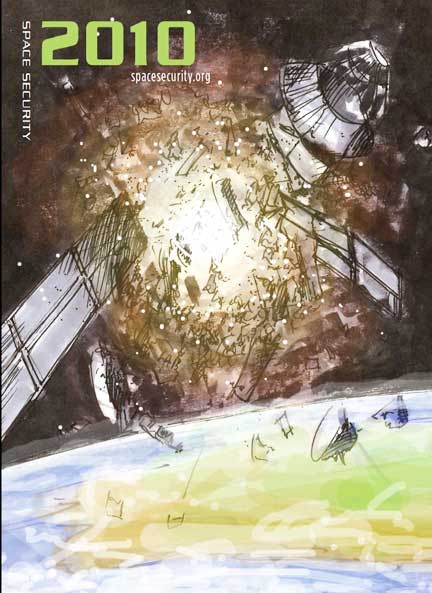Space Security 2010 is an appraisal released by the Space Security Index, an international research consortium that aims to improve transparency with respect to space activities and to support the development of national and international policies that contribute to space security. The SSI project partners are Secure World Foundation (SWF), The Simons Foundation, Project Ploughshares, the Institute of Air and Space Law at McGill University, and Foreign Affairs and International Trade Canada. Space Security 2010 was produced in collaboration with SWF, with financial support from The Simons Foundation, the International Security Research and Outreach Program at Foreign Affairs and International Trade Canada, and the Erin J.C Arsenault Trust Fund at McGill University.
Among a roster of developments covered in this just-issued SSI report:
- The collision between two satellites – a commercial Iridium satellite with a defunct Russian spacecraft – in February 2009. The collision creating thousands of pieces of debris, most too small to be tracked with precision. While the incident is widely considered to have been an accident, it underscores the need for greater coordination between operators of space systems so that similar debris-causing events can be prevented in the future.
- The Islamic Republic of Iran’s successful launch of its first domestically made satellite, becoming the latest nation to design, build, and launch its own spacecraft. The launch generated intense scrutiny from some Western countries that expressed concerns about the peaceful nature of Iran's space program, given the similarity in launch systems for satellites and ballistic missiles.
- Deployment of military space systems, which continues to be led by the United States and Russia, has increased in other countries around the world as well. Space Security 2010 finds that there are currently over 160 operational dedicated military satellites worldwide, with the U.S. operating approximately 81, Russia 38, and China 12.


